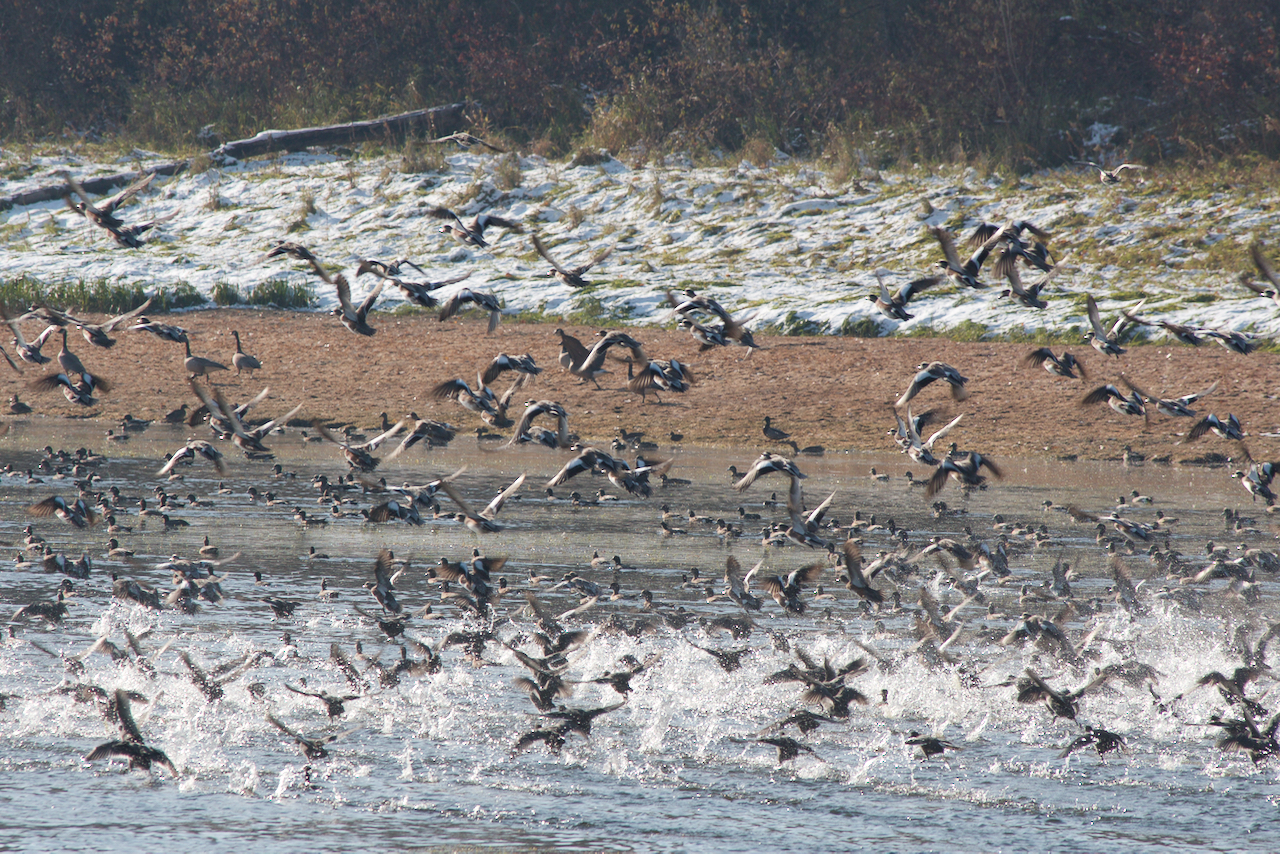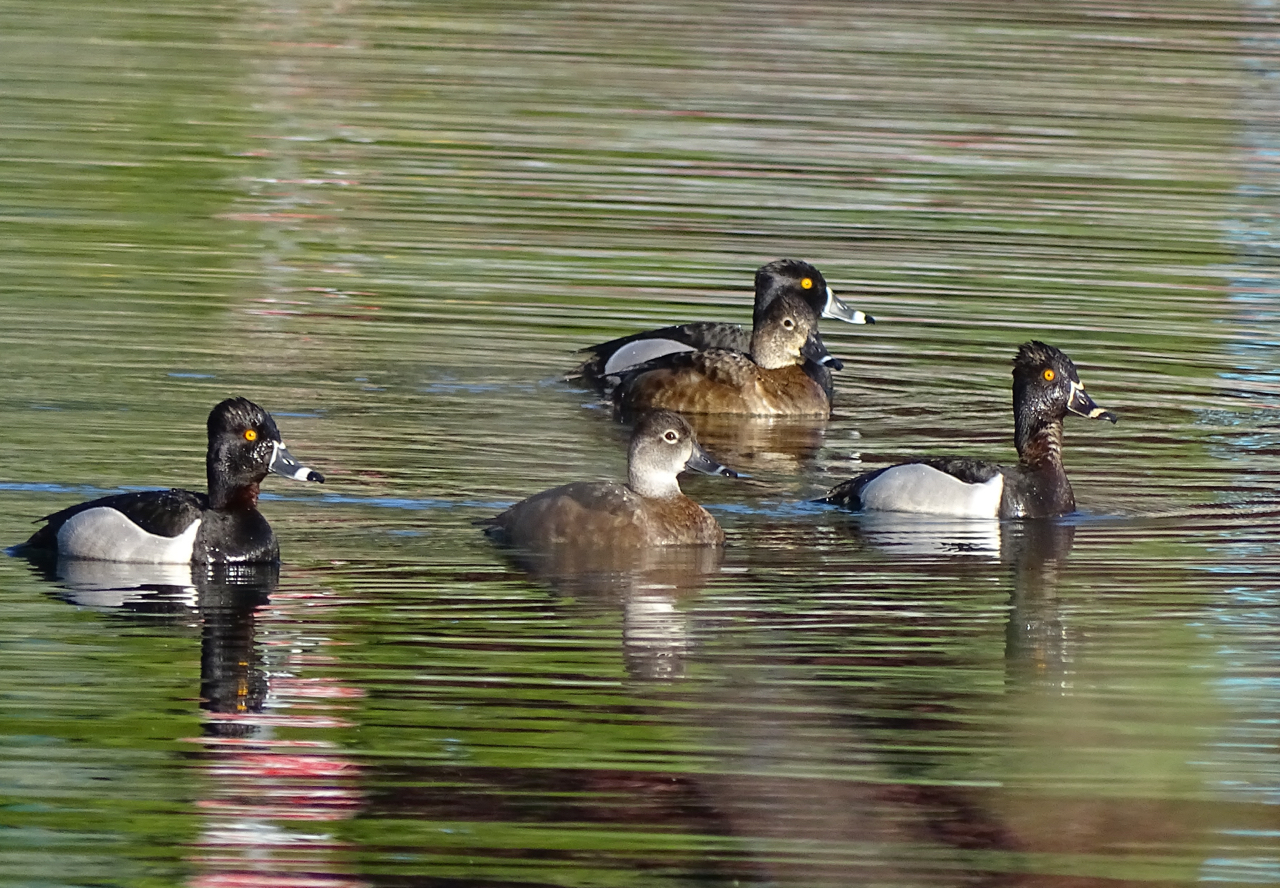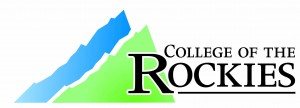Introduction to Field Ornithology
- Start Date: April 03, 2017
- End Date: April 05, 2017
- Time: various - see schedule
- City: Creston BC
- Venue: Creston Valley Wildlife Management Area & College of the Rockies
- Instructor: John G. Woods & Marc-André Beaucher
Course Description
This course introduced students to field ornithology including identification of birds by sight and sound, ethical and animal care considerations for field studies and basic methods in field ornithology (optics, field guides, sound recording, digital photography, DNA sampling, banding, standard survey protocols, estimating numbers, classifying and recording bird behaviour, data acquisition and data archiving). The majority of the course time will was held in a variety of outdoor settings in the Creston Valley Wildlife Management Area where students saw and heard numerous species of birds at an early stage in their spring migration.
Timed to coincide with the spring waterfowl migration and northward movement of raptors, students will had the opportunity to practice a sampling of field ornithology skills through direct observation and discussion with the instructors and other students. Bird observations made during the course were submitted to the eBird database as an example citizen science platform for field studies.
Course Schedule:
Mon April 3, 7-9pm
Tues April 4, 7am-5pm, with optional evening field trip to listen for owls.
Wed April 5, 6:30am-12pm
A course outline is available upon request. Email office@cmiae.org
Our Instructors
John G. Woods, Ph.D. (UBC, Zoology)
Dr. Woods has been engaged in field research in British Columbia for more than 40 years. While his research has covered a wide range of taxa (birds, bats, bears, elk, ectoparasites) he has enjoyed observing birds throughout his career and is currently the eBird observation reviewer for the Cariboo-Chilcotin region. John also participates in the continent-wide Breeding Bird Survey as a principal observer for a census route in the Chilcotin. As regional coordinator for the BC Breeding Bird Atlas in the Chilcotin and North Columbia Mountains, he organized three packhorse expeditions to study little-known alpine areas in the Itcha and Ilgachuz mountains. For many years, John held an active Master Bird Bander permit and helped to establish two bird-banding stations in BC. Since 2012, John has taught several 10-day credit courses (3rd year Biology) in field ornithology for the University of BC at Kelowna (2012, 2014-16). He particularly enjoys sharing his fascination for field biology and has led numerous field trips focussed on bird research.
Marc-André Beaucher, M.Sc., RPBio
Marc-André is the Head of Conservation Programs at the Creston Valley Wildlife Management Area (CVWMA.) He has volunteered and worked at CVWMA for nearly 20 years and has extensive experience with the identification of wetland birds in the Creston Valley. He started birdwatching at the age of 13 and continues to maintain a passion for the conservation of birds and their habitat. Marc-Andre is a trained wildlife biologist and enjoys spending time in the field monitoring and/or surveying amphibians, birds (of course!), reptiles, and invertebrates, (e.g. dragonflies and butterflies) …as well as plants. He regularly takes people and groups on field trips out in the wetland and especially loves getting people impassioned about wildlife through hands-on experiences. Marc-André is also a long-standing director of the CMI.
Who should attend?
This course is geared towards field technicians and biologist who are new to ornithology. This course may also interest people responsible for managing ornithology projects. All are welcome to take this introductory level course.
Preparation and what to bring
- Students will receive a short reading assignment and eBird exercise a month before the course begins, this will take less than 30 minutes to complete.
- Recommended reading: the introductory pages to whatever bird field guide you may own or one from the library
Required equipment:
- Field Guide: Highly recommend National Geographic Field Guide to the Birds of North America, 6th edition. These are available for ~$25 when ordered on-line.
- Personal binoculars of good quality, magnification 7-8.5, objective lens 32-42 mm, waterproof. Contact the John Woods (woodsj@telus.net) if you don’t have the recommended magnification and would like to see if what you have on hand will work. Several loaner binoculars will be available, but you need to reserve these in advance.
- Write-in the Rain all-weather Notebook No. 146
- Appropriate field clothing for any weather conditions (full rain-suit, hat, hiking boots, appropriate layers, expect rain and cold and hope for better weather!)
- Day-pack
Optional equipment:
- Whatever other bird field guides you may currently own
- Digital camera
- Food (see note below)
- Vehicle: we’ll car-pool for this course. Please indicate in your registration form if you have space to take passengers in your vehicle.
What is Included in the Course?
- Spotting scopes and tripods will be provided to each group, but please bring your own if you have one.
- Food: There will be an opportunity to order bagged lunches and snacks. Refreshments will be provided for the classroom portions of this course.
Registration
Course fees were as follows
Early Bird (closes Feb 24, 2017)
Member Fee: $444
Non-Member: $489
Regular Fees
Member fee: $454
Non-Member fee: $499
Thank you to our event host and partner:






